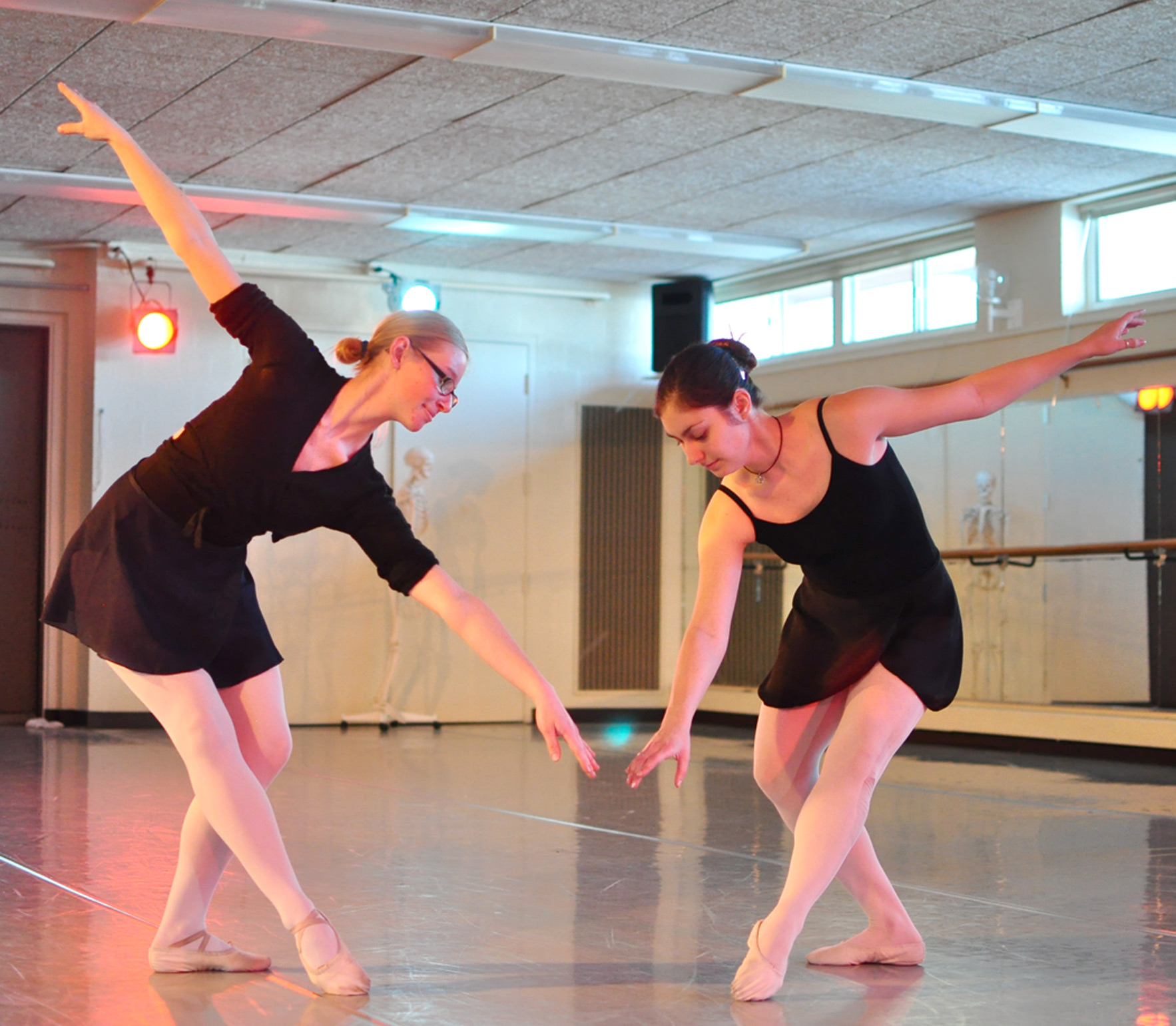Ballet has recently been in the spotlight with the release of the box office smash, Black Swan. The film centers around Nina Sayers (Natalie Portman), a ballerina for the New York Ballet Company who receives the much sought after role of the Black Swan in their production of Swan Lake. The plot follows Nina’s struggles to retain her sanity as the pressures of the role overwhelm her, playing up many of the stereotypes that surround ballet throughout the film. A few of the scenes that are quite graphic in nature raise eyebrows and have many of us wondering what the world of ballet is really like.
 “[The film] showed the hard-core side of ballet,” First-year Mallory Waytashek said, but overall students of the Intermediate Ballet class here at Gustavus thought much of the film was exaggerated. “They definitely played up the nastiness of it,” Waytashek said.
“[The film] showed the hard-core side of ballet,” First-year Mallory Waytashek said, but overall students of the Intermediate Ballet class here at Gustavus thought much of the film was exaggerated. “They definitely played up the nastiness of it,” Waytashek said.
Half the class, which ranged from first-years to seniors, had seen the film. Despite the dramatization of ballet, the overall consensus was that they enjoyed the film, but it did bring to light some of the stereotypes of dancers as a whole.
“[Some people] assume that we don’t talk, that we’re not friends,” Sophomore Biology Major Jen Wahl said, which is definitely not the case.
Many in the class expressed the meaningful camaraderie they have experienced both in the dance programs here at Gustavus and in private studio settings. “Our dance program is very open [here],” Visiting Instructor of Theatre and Dance Sue Gunness said. Gunness has spent 30 plus years teaching dance and 11 years as an instructor at Gustavus, and she is currently teaching the Intermediate Ballet students.
While the dancers feel that they have had positive experiences, they note that it is different in a more professional setting. “It would be different if you were in a company,” First-year Kelsey Charlotte said. “For the modern company, it can get really intense when you’re competing for parts,” Leah McEllistrem, senior psychology and dance major, said. At Gustavus, however, ballet doesn’t get nearly as intense as is portrayed in Black Swan.
“You need ballet for all forms of dance,” Gunness said. Dance majors at Gustavus are required to take ballet for this reason. Ballet is great for alignment and creates a “strong backbone of technique,” Waytashek said.
Ballet can benefit non-dancers as well. “You understand your body better [after taking ballet],” Senior Theatre Major Sara Van Vreede said. “[Non-dancers can also] develop a different strength that [they] can’t get from just working out,” McEllistrem said. Multi-tasking and discipline were other benefits that students noted. Technique aside, the dancers said that ballet can provide something more profound.
“[Ballet] is all-encompassing. You feel at one with yourself,” Kimmy Hinman, junior French and biology major, said.
Many of the students said that dancing in general serves as a kind of therapy for them; an escape from the pressures of the world. “You can just come to dance class and forget about it,” First-year Rebecca Stuart said.
One student equated dancing to freedom. “As satisfying as it is to dance on a stage,” Charlotte said, “there’s nothing more freeing than letting loose in a studio.”
Waytashek summed up the fundamental payoff of ballet. “[Being able] to take your emotions and assign physical motion to them is really rewarding,” she said.
These sentiments are far cry from the, at times, terrifying scenes of Black Swan, revealing that the reality of ballet is more about the love of the dance than anything else. So, if you’ve already seen Black Swan or are planning on seeing it in the future, remember not to judge ballet by its movie. Get the facts from a real ballerina first.
